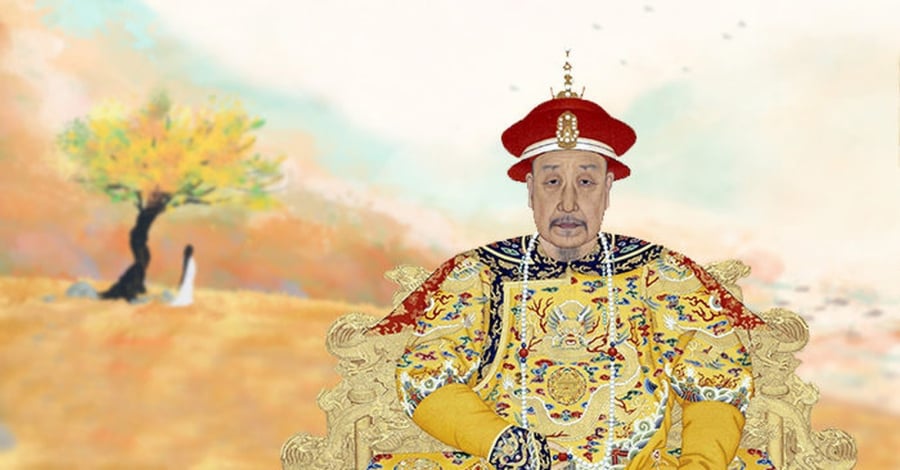Throughout China’s millennia-old history, only three emperors are recorded to have lived beyond the age of 80, while the average lifespan of emperors hovered around a mere 39 years. Emperor Qianlong, born in 1711, is regarded as the longest-living monarch in China’s history, reaching the impressive age of 89.
Numerous scholars have uncovered one of Emperor Qianlong’s secrets to his robust health and longevity: healthy sleep habits. The link between sleep and physical and mental health, as well as longevity, has been unequivocally established by modern scientists.

Emperor Qianlong
Adhering to a Sleep Schedule
Emperor Qianlong prioritized a balance between work and rest, always ensuring he slept and woke up at the same time. He avoided late-night dinners, which helped maintain good sleep quality. The emperor also lived by a strict discipline, avoiding oversleeping and rising at 4 am for morning exercises outdoors, followed by breakfast at 7 am.
For adults, getting a full 7-8 hours of sleep each night brings about numerous health benefits. During sleep, our bodies produce hormones that maintain healthy blood circulation, benefiting the heart and blood vessels. Our immune system also functions more robustly when we enjoy quality sleep, reducing inflammation and stabilizing blood sugar levels.
Adequate sleep not only boosts our immune system but also enhances memory, concentration, and reduces stress. A study by the National Heart, Lung, and Blood Institute in the US involving 172,000 participants revealed that those who slept sufficiently had a 30% lower risk of premature death from all causes. They also had a reduced risk of developing heart disease, cancer, and various other critical illnesses.
On the other hand, insufficient sleep or poor sleep quality increases the likelihood of chronic conditions such as high blood pressure, cardiovascular disease, diabetes, and depression, and it may even shorten one’s lifespan. Lack of sleep can lead to fatigue, negatively impacting the brain and causing irritability, anxiety, and memory impairment.
Soaking Feet Before Bedtime
Emperor Qianlong also had a nightly routine of soaking his feet in warm water, combined with a massage, as a form of health maintenance. Historical records indicate that each evening, the emperor would soak his feet in warm water infused with herbs such as saffron, mugwort, cinnamon, and clove. The water temperature was maintained to ensure an appropriate soaking duration.
In Traditional Chinese Medicine, the feet are considered the ‘second heart’ of the body due to the presence of over 20 acupoints, each influencing overall health. Proper foot care can contribute to maintaining good health. Foot soaking helps dilate blood vessels, improves blood circulation, relieves stress, and promotes deeper sleep. Improved sleep quality leads to the production of beneficial hormones, reducing anxiety and stress.
Maintaining the habit of foot soaking over time can boost the immune system, fight bacteria, reduce inflammation, and alleviate symptoms of certain chronic diseases. The ideal water temperature for foot soaking is around 40-50°C (104-122°F), and the soaking duration should be 10-15 minutes. You can also enhance the experience by incorporating herbal blends and a foot massage, positively impacting the nervous system, stimulating blood circulation, regulating qi and blood, and promoting balance within the body.
However, individuals with conditions such as atherosclerosis, blood clots, or varicose veins should exercise caution and refrain from this practice to avoid exacerbating their condition.
Embracing the scientific sleep habits and bodily care routines of Emperor Qianlong offers valuable lessons in achieving a healthier and longer life, applicable even in our modern era.





































